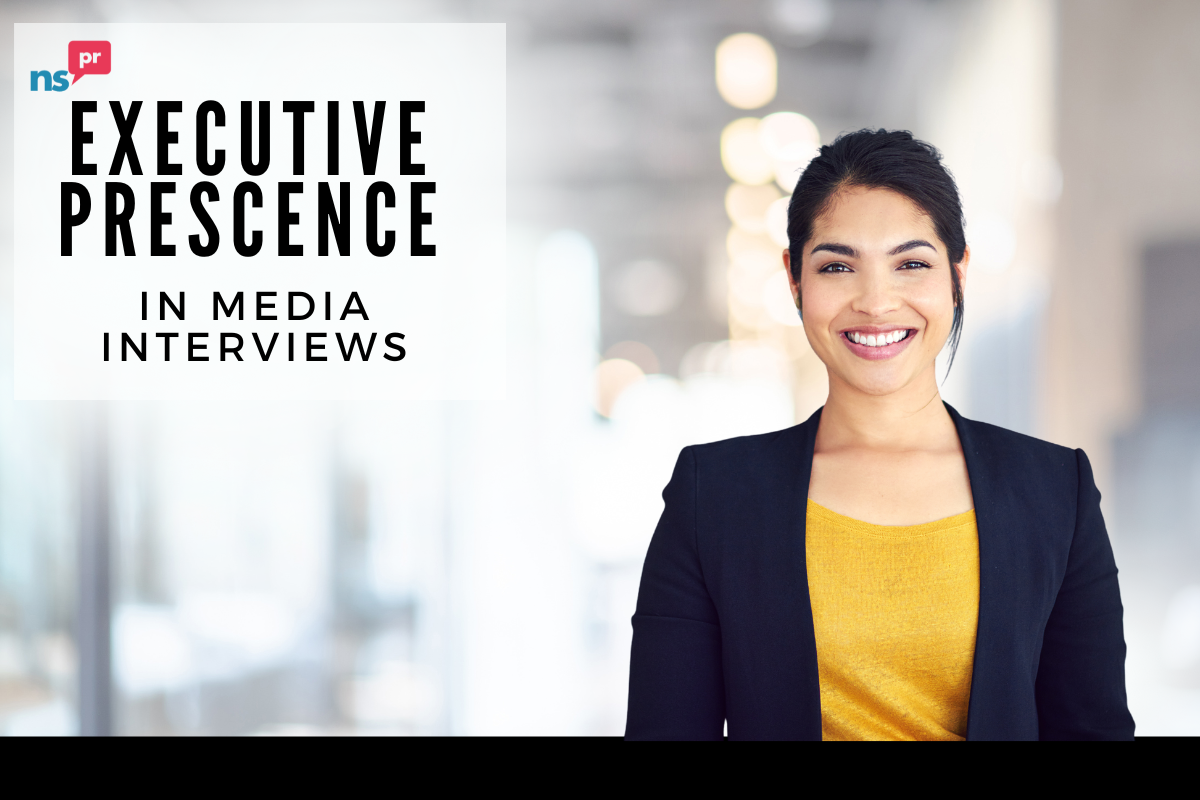
18 Sep Mastering Executive Presence in Media Interviews
In today’s fast-paced world, where information spreads at the speed of light, executives and leaders must possess skills to navigate the realm of media interviews. These encounters serve as a powerful platform to convey their organization’s message, build trust, and shape public perception. Executive presence, a combination of confidence, charisma, and communication skills, plays a pivotal role in ensuring these interviews are both successful and impactful.
Why Executive Presence Matters
Executive presence is not a mere buzzword; it’s a defining trait that distinguishes leaders who excel in media interviews from those who falter. It encompasses the ability to exude confidence, articulate ideas clearly, and connect with the audience on a personal level. In an era when the media scrutinizes every word and gesture, executive presence is a crucial asset that can make or break a leader’s reputation.
Credibility and Relatability
Credibility and relatability are two pillars of executive presence that can profoundly impact the success of media interviews. Credibility is built on a foundation of expertise, honesty, and consistency. Executives must demonstrate a deep understanding of the topics they discuss, providing valuable insights and data-driven perspectives. Transparency and authenticity play a pivotal role in establishing credibility. Admitting mistakes when necessary, acknowledging challenges, and expressing genuine enthusiasm for their organization’s mission can go a long way in building trust with the public.
Relatability, on the other hand, hinges on the ability to connect with the audience on a personal level. Executives should strive to convey their message in a way that resonates with the experiences and concerns of the public. Sharing personal anecdotes or real-life examples can humanize their message and make it more relatable. It’s not just about what executives say; it’s about how they say it and the emotional connection they establish with the audience.
Confidence and Body Language
Confidence is an integral component of executive presence. When executives exude confidence, it instills trust and credibility in the audience. However, confidence is not solely about what you say but also how you say it. Executives must pay attention to their body language, maintaining good posture, making eye contact, and using gestures that enhance their message. A confident demeanor can turn a good interview into a memorable one.
Active Listening
Media interviews are not one-way conversations. Effective leaders are active listeners who engage with the interviewer and respond thoughtfully to questions. This demonstrates respect for the interviewer and the audience. Moreover, active listening allows executives to provide more relevant and nuanced answers, fostering a deeper connection with the audience.
Adaptability
In the dynamic world of media interviews, adaptability is a valuable trait. Executives should be prepared to adjust their messaging based on the context and the interviewer’s line of questioning. While staying true to their core message, adaptability ensures that they can address unexpected topics with ease and grace.
Emotional Intelligence
Media interviews often involve discussing sensitive topics or addressing public concerns. Executives with high emotional intelligence can navigate these conversations with finesse. They can empathize with the concerns of the audience and respond in a way that reassures and builds goodwill.
Feedback and Continuous Improvement
The path to mastering executive presence in media interviews is an ongoing journey. After each interview, it’s essential to seek feedback, both internally and externally, to identify areas for improvement. Constructive criticism can help executives refine their skills and enhance their performance in future interviews.
In the realm of media interviews, executive presence is the link that ties together all the essential elements of successful communication. It empowers leaders to convey their message with confidence, connect with their audience on a personal level, and build trust and credibility. By focusing on confidence, active listening, adaptability, credibility, relatability, transparency, emotional intelligence, and continuous improvement, executives can elevate their presence in media interviews and make a lasting impact on their organizations and the public. In a world where every interview is an opportunity to shape public perception, mastering executive presence is not just an option; it’s a strategic imperative.


No Comments